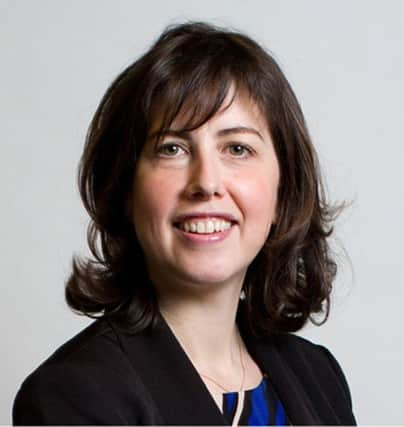Lucy Powell: The law needs to catch up with facebook and a world of online hate


Just one month earlier, Osborne was a different person with no history of extreme ideology or beliefs. His ex-partner claimed he had been radicalised in just three weeks. The ground was laid by his mental health problems, long-term unemployment and alcohol abuse, but the catalyst was a television drama about grooming gangs in Rochdale.
Advertisement
Hide AdAdvertisement
Hide AdAfter seeing it, Osborne spent the next three weeks consuming anti-Muslim extremist propaganda online, after which he was ready to kill innocent people.


Whether it is inspiring domestic terrorism, young British people being pulled into fighting for terrorists overseas, or facilitating the resurgence of the far right, online radicalisation is a frighteningly dangerous process which we are not equipped to counter.
Moreover, the spreading of hate, racism, misogyny, anti-Semitism or misinformation, knowingly and without any accountability, is dangerous and is having a profound effect on our society.
Our newspapers, broadcasters and other publishers are held to high standards, yet online groups, some of which have more power and reach than newspapers, are not held to any standards. Nor are they accountable.
Advertisement
Hide AdAdvertisement
Hide AdMy Bill is an attempt to take one step towards putting that right. It would make those who run large online forums accountable for the material they publish, which I believe would prevent them from being used to spread hate and disinformation, and for criminal activity. It would also stop groups being completely secret.
As the most popular social media platform, Facebook groups range from a few members to hundreds of thousands. They are run by administrators and moderators, who are charged with upholding Facebook’s community standards. Groups are set up to help old school or university friends keep in touch, and for people with a common hobby or interest to come together.
However, there are also numerous examples of forums being used for utterly appalling ends, and deliberately so. One such group is the Young Right Society, uncovered by Hope not Hate. The charity revealed that the group was “frequently awash with appalling racist” content.
It is not only racism that is allowed to thrive. Marines United was a secret group of 50,000 current or ex-servicemen from the US and British militaries. Members used the forum to share nude photos of their fellow servicewomen.
Advertisement
Hide AdAdvertisement
Hide AdResearch by Professor Jen Golbeck of the University of Maryland shows that members of online forums feel at risk of becoming a pariah in closed groups if they report objectionable posts, so they do not.
Canada’s largest far-right organisation started as a Facebook group on which Islamophobic conspiracies were circulated, the claimed Islamification of Canada was criticised, and members were encouraged to send pigs’ heads and blood to mosques – plans that were then carried out.
The most disturbing example I have come across is a forum of 8,000 parents of autistic children here in Britain. It is the sort of group that Facebook might point to as an example of how the site can bring people in a difficult situation together to share their experiences, but it was being used in a truly horrific way.
Members told the group that giving their child so-called “bleach enemas” would cure their autism. Several parents carried them out and then shared images of what they believed to be parasites – but which were, in fact, the children’s bowel linings – leaving their children after the process. The group’s secret setting meant that charities like the National Autistic Society were locked out until one member contacted the police.
Advertisement
Hide AdAdvertisement
Hide AdSocial media companies cannot be relied upon to monitor and regulate the forums themselves. They have proven that time and again. Our political parties are also struggling with the phenomenon. Abusive and hateful views and misinformation about politics or politicians can quickly take hold unchallenged, and unacceptable views can become normalised.
I am talking not about censorship or small private gatherings but about accountability for powerful and large-scale publishing and sharing. Figures from the House of Commons Library show that, in 2007, 498 people were convicted under the Communications Act 2003 for sending grossly offensive messages. After a decade in which social media became a prominent part of most people’s lives, this figure had nearly tripled, but the Act they were convicted under was passed in 2003 before Facebook even existed.
Our laws desperately need to catch up. My Bill is a small step to establish clear accountability in law for what is published on online forums and to force those who run the forums no longer to permit hate, disinformation and criminal activity.
Lucy Powell is Labour MP for Manchester Central. She proposed a Bill in Parliament this week that would regulate online forums. This is an edited version.